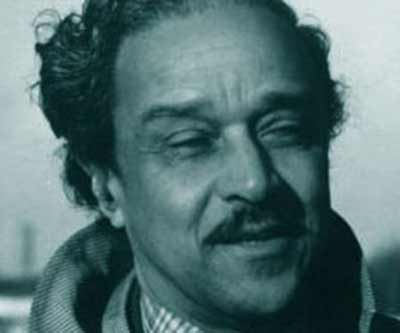THE Guyana Prize for Literature has finally been acknowledged as flawed and this is a good thing because now the authorities can put mechanisms in place that make the Prize stronger and better organised than it currently is.
At least, that is the approach that one would expect a government that is intent on cultivating fertile ground for art creation and propagation. What absolutely should not be allowed and condoned is any plan of action that calls for the complete dissolution and end to the Guyana Prize for Literature. One hopes that this second course of action is far removed from the Department of Culture’s agenda and that a long-awaited assessment of the current state of the Prize and how to improve upon it is truly what is necessary for Guyana.

Over the years, this Prize has long been one of the few signifiers of the various governments’ alleged interest in the creative sector and it has continuously marked the works and oeuvre of a number of Guyanese writers, helping them to be introduced to a wider audience (most notably the Guyanese audience itself) and carrying a financial reward that, in this day and age where the concept of the starving artist rings particularly true, is very significant in the artistic and literal survival of writers.
Many names that carry the weight of the Guyana Prize for Literature also carry the mantle of several other international recognitions and distinctions. Such writers include Wilson Harris, Martin Carter, David Dabydeen, Grace Nichols, John Agard, Pauline Melville, and Beryl Gilroy. The Guyana Prize is one of the literary connections that bind such a stellar group of writers together and offers them to the world.
Any changes that come to the Guyana Prize in the upcoming days must ensure that this solid literary legacy is maintained and any changes that come about should aim towards ensuring that the Prize continues to reward writers of great skill and literary prowess. The important questions are:
1) How do we find such writers?
2) How do we make such writers?
The great failing of both this government and the previous government is not being able to understand the role of literature-based initiatives and programmes that focus on the training of writers and the honing of skills – particularly when it comes to writers of poetry and fiction. A good example of the value of integrating artists into a space where their art is taught, curated, developed, and commercialised can be found in the National Drama Company of Guyana (NDC), which is an arm of the National School of Theatre Arts and Drama (NSTAD), along with other organisations, such as the Theatre Guild.
With the immersion of members into the various aspects of theatre, with Playwriting classes being taught, and with hands-on opportunities to develop their craft, there is no doubt that the NDC and other theatre groups are becoming forces of literature to be reckoned with. With the arrival of the NDC and NSTAD, many new pieces of Guyanese theatre – of the literary, academic kind and not only the comedic, slapstick kind – have graced the various stages in Georgetown and it is possible that the emergence of these plays is helping to strengthen the theatre fraternity in Guyana.
In fact, if the Guyana Prize is to be continued, I foresee the Drama category emerging as one of the most competitive categories, especially because of the new plays that have been made in recent years.
The point of the analogy of Drama has to do with how training and proper artistic environments have proven to be a driving force behind creative writing in Guyana, and the analogy highlights these elements to suggest that the Guyana Prize needs to work in conjunction with artistic training (whether through courses or workshops or summer programmes), with knowledge from expert writers and teachers (even if they have to be brought in from another country) in order to ensure that Guyanese writers continue to exist.
With regards to whether the Guyana Prize has encouraged young writers to continue writing, I can only speak for myself. As the second youngest winner of the Prize, I can say that I was encouraged to keep writing because of the validation I received through the Prize and the self-recognition of my skills as a writer that I was able to believe in after winning. Since 2015, when I won the award, I have written plays, numerous non-fiction pieces, and I have been a part of several residencies and festivals, where my work has been represented. Winning the Prize is partially responsible for all of this, and every event, every connection, every person I meet, enables me to want to continue writing.
In short, did the Guyana Prize for Literature, inspire me, as a young writer to keep writing? The answer is: yes, absolutely. The Guyana Prize inspired me to write before I won it because I wanted to write to win it. The Guyana Prize inspired me to write after I won it because it helped me to become self-aware of my talents and it helped me to understand the power of my voice, my words, and my ability to create an impact through my writing.
Whatever changes the government may bring on to the Prize must be changes that do not render the Prize non-existent.
It serves many purposes, as outlined previously, but there is also the most important purpose that is observed when we think about how the Prize fosters writing, and that writing itself can be an act of rebellion, an act of criticism, a catalyst for change, and a way of saving lives.



.jpg)











